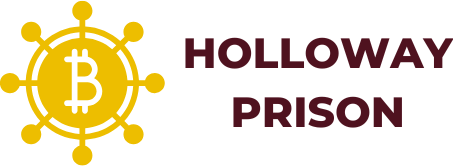In a world where technology evolves faster than a cat meme goes viral, staying updated on the latest trends is crucial. From AI that can write poetry to gadgets that might just make your morning coffee, the tech landscape is buzzing with innovations that promise to change our lives. If you think your smartphone is smart now, just wait until you see what’s around the corner.
Navigating these trends can feel like trying to find a Wi-Fi signal in a remote cabin, but fear not! This guide dives into the top tech trends that are shaping industries and influencing everyday life. Buckle up and get ready to discover how these advancements can make life easier, more fun, and maybe even a little more futuristic—because who wouldn’t want a robot butler?
Table of Contents
ToggleOverview of Top Tech Trends
Technology evolves at a rapid pace, shaping how industries operate and individuals interact with the world. Artificial Intelligence (AI) tops the list of trends, influencing sectors like healthcare, finance, and education. Automation processes improve efficiency and reduce human error, while machine learning enhances data analysis capabilities.
The Internet of Things (IoT) continues to expand, connecting devices to streamline processes. Smart homes utilize IoT technology for energy efficiency and security. Wearable devices capture health metrics, promoting proactive health management.
Cloud computing revolutionizes data storage and access. Organizations leverage cloud services for scalability and cost-effectiveness. Many businesses rely on hybrid cloud solutions, balancing on-premise and off-site resources to enhance operational flexibility.
Blockchain technology secures transactions and enables transparent record-keeping. Industries adopt blockchain for supply chain transparency and digital identity verification. Cryptocurrencies also gain traction, emphasizing the need for secure financial transactions.
5G technology enhances mobile connectivity, providing faster speeds and lower latency. Increased bandwidth supports advanced applications, including augmented and virtual reality experiences. Enhanced connectivity facilitates seamless remote work and communication.
Sustainable technology increasingly gains attention as environmental concerns rise. Organizations prioritize eco-friendly practices, implementing energy-efficient solutions. Innovations like solar energy systems and electric vehicles promote sustainability in daily life.
As these tech trends unfold, their impact on society becomes evident. Each trend offers opportunities for advancement and improvements in various aspects of life, ensuring that staying informed remains essential.
Emerging Technologies

Emerging technologies are reshaping the landscape of industries and everyday lives. Key advancements continually enhance efficiency and connectivity.
Artificial Intelligence Advances
AI advancements propel sectors like healthcare and finance into a new era of efficiency. Machine learning algorithms analyze vast amounts of data, uncovering patterns that inform decision-making. Automation reduces human error and accelerates processes, making businesses more competitive. Furthermore, AI-powered applications improve customer experiences through personalized recommendations and support systems. Notably, virtual assistants streamline tasks, allowing individuals to allocate time to more critical activities.
Blockchain Innovations
Blockchain innovations redefine security and transparency in transactions. This decentralized technology offers tamper-resistant records, benefiting industries such as supply chain management and financial services. Increased trust in data integrity enhances collaboration among stakeholders. Additionally, smart contracts automate agreements, minimizing disputes and facilitating faster transactions. Cryptocurrency platforms also continue to evolve, enabling seamless cross-border transfers, thus expanding financial opportunities. Emphasis on blockchain’s potential for revolutionizing digital identity verification underscores its growing significance.
Consumer Technology Trends
Consumer technology trends are rapidly changing how individuals interact with devices and enhance daily living. Notable advancements in smart home devices and wearable technology lead these innovations.
Smart Home Devices
Smart home devices create seamless integration within households. These gadgets include smart speakers, automated lighting systems, and security cameras. By connecting through the Internet of Things (IoT), they provide remote management via smartphones. Users experience enhanced convenience and improved energy efficiency, with smart thermostats adjusting settings based on preferences. Adoption rates of smart home technology continue to rise, with millions of households expected to incorporate these devices in the next few years. As technology advances, companies are introducing more sophisticated products that improve home security and automation.
Wearable Technology
Wearable technology gains traction as health monitoring and fitness tracking become priorities for consumers. Smartwatches and fitness trackers monitor heart rates, sleep patterns, and physical activity. Personalized data helps individuals make informed decisions about their health. The global wearables market saw a significant increase, with many users relying on these devices to track daily habits. Enhancements in battery life and functionality promote further adoption and integration into daily routines. Improved user interfaces make interaction easier, leading to a more engaged and health-conscious population.
Business Technology Trends
Staying updated on business technology trends transforms how organizations operate and innovate. Companies increasingly rely on cutting-edge solutions to remain competitive.
Cloud Computing Solutions
Adoption of cloud computing continues to surge, offering scalable storage and powerful computing resources. Organizations implement hybrid cloud models to balance data security and flexibility. By leveraging cloud-based applications, teams enhance collaboration and streamline business processes. Specific platforms, like AWS and Microsoft Azure, provide tailored solutions that meet diverse needs. Evidence shows that businesses utilizing cloud technologies report higher operational efficiency and reduced costs.
Remote Work Tools
Remote work tools reshape how teams communicate and collaborate. Applications like Slack and Zoom facilitate seamless interactions, regardless of physical location. Enhanced functionality in project management software allows for real-time updates and accountability among team members. Companies adopting these tools experience increased productivity and employee satisfaction. Integration of remote work solutions fosters a culture of adaptability, essential in today’s dynamic business environment. Analytics indicate that organizations leveraging remote work tools can achieve better project outcomes and employee engagement.
The landscape of technology is evolving at an unprecedented pace. Staying updated on these trends isn’t just beneficial; it’s essential for individuals and businesses alike. Embracing innovations like AI, IoT, and 5G can lead to improved efficiency and enhanced experiences.
As these technologies become more integrated into daily life, they promise to create smarter environments and promote healthier lifestyles. The commitment to sustainability in tech further emphasizes the need for responsible innovation.
By understanding and adapting to these trends, society can harness the full potential of technology, paving the way for a more connected and efficient future.





